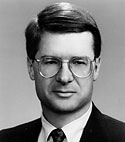 |
|
David J. Undis
Guest Columnist
|
|
|
By David J. Undis
Arizona Daily Wildcat
Tuesday, January 25, 2005
Print this
Eugene Martinez, who recently received the 700th heart transplant performed at University Medical Center, was very lucky to get a heart transplant. Because of a shortage of transplantable organs, more than half of the people who need a transplant in the United States die before they get one. More than 87,000 Americans are now on the national transplant waiting list, and another 40,000 will join the list this year.
We don't need medical breakthroughs to reduce the organ shortage. We just need behavior change. We just need to stop throwing away organs that can save lives. Americans bury or cremate thousands of transplantable organs every year. More than 6,000 of our neighbors die every year as a result.
There is a simple solution to the organ shortage: Give organs first to people who have agreed to donate their own organs when they die.
Giving organs first to organ donors will convince many more people to sign donor cards. A simple thought experiment shows this clearly. Imagine that the United Network for Organ Sharing, which runs the national organ allocation system, made the following announcement tomorrow: "Beginning Jan. 1 of next year, no human organ will be made available in the United States for transplantation into any person who is not registered as an organ donor. The only exceptions will be cases where no registered organ donor can be found to match an organ that is available."
This announcement would cause people to sign organ donor cards in droves. Wouldn't you sign one? Registering as an organ donor would give you a better chance of getting an organ if you ever need one. When you consider that every 90 minutes someone in America dies waiting for a transplant, the chance to move up the waiting list could literally mean the difference between life and death. Donating your organs after you die is a small price to pay for a better chance to get an organ if you ever need one to live.
Giving organs first to organ donors will also make the organ allocation system fairer. About 70 percent of the organs transplanted in the United States go to people who haven't agreed to donate their own organs when they die. People who are too lazy or too selfish to register as organ donors shouldn't be eligible for transplants as long as there is a shortage of organs.
Imagine a heart is available for transplant. Imagine two people are a good match for the heart: Mr. Donor, who has committed to donate his organs when he dies, and Mr. Keeper, who has not. Given that there is a shortage of organs, should we treat Mr. Donor and Mr. Keeper as if there is no ethically relevant difference between them? No. Mr. Donor should get that heart, even if Mr. Keeper is sicker or has been waiting longer. Giving the heart to Mr. Donor serves the cause of justice.
Perhaps more importantly, rewarding Mr. Donor's decision to donate his organs encourages others to do the same. That saves lives. On the other hand, giving that heart to Mr. Keeper encourages others to delay signing donor cards or to refuse to sign them, and that lets more people on the transplant waiting list suffer and die.
If you want to donate your organs to other organ donors, you can accomplish this by joining LifeSharers. Membership is free and open to all at www.lifesharers.com.
LifeSharers is a 501(c)(3) not-for-profit network of organ donors. Members agree to offer their organs first to other organ donors when they die. They do this through a form of directed donation that is legal in all 50 states and under federal law.
LifeSharers does not discriminate on the basis of race, color, religion, sex, sexual orientation, national origin, age, physical handicap, health status, marital status or economic status. LifeSharers has 2,859 members, with members in all 50 states, including 38 members in Arizona.
Organ donation is perhaps the greatest gift anyone can give or receive. It is literally the gift of life. Please join LifeSharers. The life you save may be your own.
David J. Undis
Executive Director
LifeSharers
www.lifesharers.com
6509 Cornwall Drive
Nashville, TN 37205
Phone: 615-351-8622 or 615-356-3918
